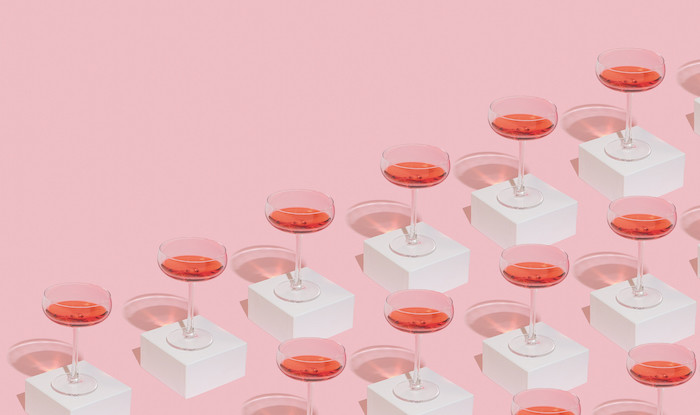
Kevin Armstrong argues the case for rewarding consistency rather than creativity for the sake of it.
Somewhere on the internet, there is a grainy yet remarkable video of Sasha Petraske, the man behind Milk & Honey, NYC, arguably the most important bar of the 21st century. He’s talking to Anistatia Miller at the 2009 London Bar Show and makes the point that creativity is not the be all and end all of bartending. After all, some people are gifted with creativity, others less so.
Whether you are creative or not, bartending is about making drinks. Once a recipe has been prescribed in a specific bar and for a specific cocktail, the focus shifts from creativity simply to delivery.
To Petraske, good bartending is less about creativity, or even skill – far more important is will or character. As Petraske said, the question is “will you make 250 good drinks in a row, not can you. As the set of people that can is far larger than the set of people who we call great bartenders”.
We need reminding of this, now more than ever. Consistency in delivery is as important as everything else. Yet, as an industry we don’t overly reward consistency. There’s little romance in being steadfast and reliable, even when your product is excellent. It’s hard to picture an award for consistency at the Class Bar Awards: “And this year’s award for doing the same thing well, over and over, goes to…” Instead we reward, and award, the new. Novelty, it seems, has intrinsic attraction, regardless of its inherent value.
It’s no surprise then that originality is the priority of the modern beverage programme – originality of ingredients, techniques and menu concept. Naturally, this aids the marketing of our bars as the call for something new, especially on social media, is constant. In short, our work must be newsworthy.
I have tried more than enough signature drinks, some gimmicky even, to know that originality or creativity does not always mean better or, quite frankly, even good. This pursuit of creativity and originality is only a good thing when it leads to better cocktails or happier guests. So often, it does not.
Ingredient arms race
Unusual ingredients are often the first port of call in the pursuit of originality. Through manipulation or rarity we value presenting something that no one else has or tried. Even if that means taking a raspberry and processing it, until ultimately it tastes less good than, say, a raspberry. If it’s better then great, but if not, then why bother?
Such pursuits have brought us the delights of wild-garlic-pesto-washed vodka and cocktails featuring smoked herring (yum). These are drinks that nobody is asking for, but we’re still serving them. We are simply trying too hard to do new and our originality is nothing other than cocktail clickbait.
Now, before you tell me that people order these things, I would ask you to reflect on your bartending careers. Mine, for the record, is approaching 30 years. In that time, making tens if not hundreds of thousands of drinks, and serving similar numbers of people, nobody has ever asked me for a smoked herring Caipirinha. I’m confident that you’ve not been asked for that either.
Like all product development, the ingredient arms race will produce a number of winners, but it will produce far more losers, some that should have never even entered the race and should certainly not make a menu appearance.
I don’t need to experience the pain of a crocodile bite to know that I most likely won’t enjoy it, but somewhere there is a bartender who will try to convince me that the addition of stink bug distillate will make my $30 Between The Sheets just that little bit better. It won’t.
A list of nice things is no longer enough
When a bicycle manufacturer wants you to part with large amounts of money, they give their high-end components powerful and evocative names like Ultegra, Centaur or Force. It’s noticeable that similar names are now being used for our cocktail menus.
Children and pets need names, I’m not convinced our menus do. A list of good drinks does not need to be passed through a hyperbolic marketing filter. We are not making golfing equipment or releasing couture fashion collections, but you wouldn’t know it from our menu titles. Such is the way of marketing, many of these words carry no meaning.
In this race for more and more; bigger, smaller, more original, more creative, more elegant, more collaborative, more Instagram-able, the most logical step is de-escalation and simplification – think Gillette vs Harry’s razors. This marketing one-upmanship is a dangerous game for all of us. Video, design, branding, printing – it can all be very expensive, particularly when we’ve got plenty of other things to worry about. It means that the most talked-about bars will end up being the ones with the deepest pockets.
Originality and creativity are not substitutes for great hospitality
This is not a rejection of originality, more an observation that we can’t all be Iain McPherson, finding fame through pioneering brilliance (and a hint of charm). Arguably, our industry doesn’t need hundreds of Iain McPhersons either. If you are not naturally creative, it’s more than OK. There have been generations of exceptional bartenders who have not been.
Once the current generation of bartenders master in-house distillation, cryo-concentration, carbonation and clarification, and exhaust all the rare ingredients they can find, what comes next? Perhaps, at this point, the best means of differentiation between our bars will not be the originality of our beverage programmes, but the consistency we provide in their delivery, the nature of the spaces we create and the level of warmth and hospitality within them.
I value these things above originality and creativity, and I think most of our guests do too.


